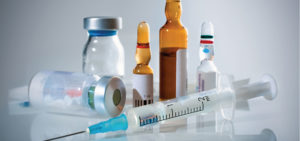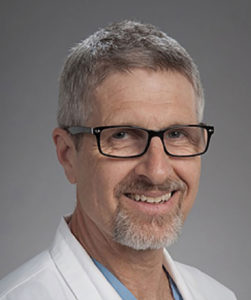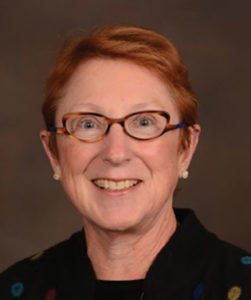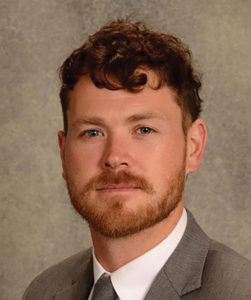 The APSF has identified improving medication safety during anesthesia care as one of its primary priorities for several years. In 2010, APSF hosted a special conference on medication safety which resulted in the recommendation to follow the Standardization, Technology, Pharmacy, Culture (STPC) paradigm as a means to enhance safe medication practices.1 Medication safety was again revisited at the 2018 Stoelting Conference. Prior to the conference, the APSF solicited applications for an award to recognize best practices for safe medication administration during anesthesia care. The request for submissions had several specific criteria that followed the STPC paradigm emphasizing practices that have been implemented and also evaluated using a methodology to assess the impact on safety.2 Submissions were reviewed by a subcommittee of the APSF Committee on Technology, and three finalists were selected. Collectively, these programs provide examples of the current best practices for using prefilled syringes, smart pumps and bar coding, and, more importantly, the need for a culture dedicated to eliminating medication errors. The awardees are as follows:
The APSF has identified improving medication safety during anesthesia care as one of its primary priorities for several years. In 2010, APSF hosted a special conference on medication safety which resulted in the recommendation to follow the Standardization, Technology, Pharmacy, Culture (STPC) paradigm as a means to enhance safe medication practices.1 Medication safety was again revisited at the 2018 Stoelting Conference. Prior to the conference, the APSF solicited applications for an award to recognize best practices for safe medication administration during anesthesia care. The request for submissions had several specific criteria that followed the STPC paradigm emphasizing practices that have been implemented and also evaluated using a methodology to assess the impact on safety.2 Submissions were reviewed by a subcommittee of the APSF Committee on Technology, and three finalists were selected. Collectively, these programs provide examples of the current best practices for using prefilled syringes, smart pumps and bar coding, and, more importantly, the need for a culture dedicated to eliminating medication errors. The awardees are as follows:
FIRST PLACE
University of Washington Medical Center Anesthesia Drug Safety Bundle, submitted by T.A. Bowdle MD, PhD, Professor of Anesthesiology and Pharmaceutics, Department of Anesthesiology, University of Washington.
The submission was notable for a comprehensive approach to improving medication safety dating back to 2002, which utilized repeated data collection to assess the impact on medication errors. As a result of this department’s efforts, the rate of self-reported errors was reduced from 0.63% to 0.23% over an approximate 12-year interval. Their experience teaches us about the benefits and challenges to implementing technology solutions, in particular the use of bar code scanning at the bedside.
SECOND PLACE
Michigan Medicine Anesthesia Medication Safety Initiatives, submitted by Deborah S. Wagner PharmD, FASHP, Clinical Professor of Anesthesiology/Medicine, Department of Anesthesiology, University of Michigan.
This submission also described a comprehensive program to reduce medication errors founded on a collaboration between the Departments of Pharmacy and Anesthesiology. In addition to focusing on bedside medication administration, their program seeks to monitor and detect drug diversion. The cultural commitment is most notable as evidenced by the formation of a multidisciplinary medication safety task force that meets biweekly to assess medication practices and reduce error. They also have developed dashboards to continuously assess current medication administration practices.
HONORABLE MENTION
The Codonics Safe Label System®: utilizing technology to increase medication labeling compliance and charge capture while maintaining user acceptability in pediatric operating rooms submitted, by James J. Thomas, MD, Department of Anesthesiology, University of Colorado School of Medicine, Children’s Hospital Colorado.
This submission was focused specifically on integrating a syringe label printer and bar coding with medication inventory and electronic medical record systems. The impact was an improvement in compliance as well as charge capture and provider acceptance.
Without question medication errors continue to place patients at risk for preventable adverse events. Anyone involved with the practice of anesthesia can learn from the work of these awardees to find ways of eliminating medication errors in their own practice. The details of each of these submissions can be found on the APSF website at https://www.apsf.org/grants-and-awards/safety-recognition-award/.
Jeffrey Feldman, MD, MSE, is professor of clinical anesthesiology and critical care at the University of Pennsylvania, attending anesthesiologist at the Children’s Hospital of Philadelphia, and chair of the APSF Committee on Technology.
Dr. Feldman serves as a member of the Clinical Advisory Board, ClearLine MD, Boston, MA. Dr. Feldman has received consulting compensation from Dräger Medical, GE Medical, and Medtronic.
References
- Eichorn JH. APSF Hosts Medication Safety Conference, APSF Newsletter 2010;25:1, 3–8. https://www.apsf.org/article/apsf-hosts-medication-safety-conference/ Accessed on August 19, 2018.
- https://www.apsf.org/news-updates/apsf-safety-recognition-award-best-practices-for-safe-medication-administration-during-anesthesia-care/ Accessed on August 19, 2018.


 Issue PDF
Issue PDF

